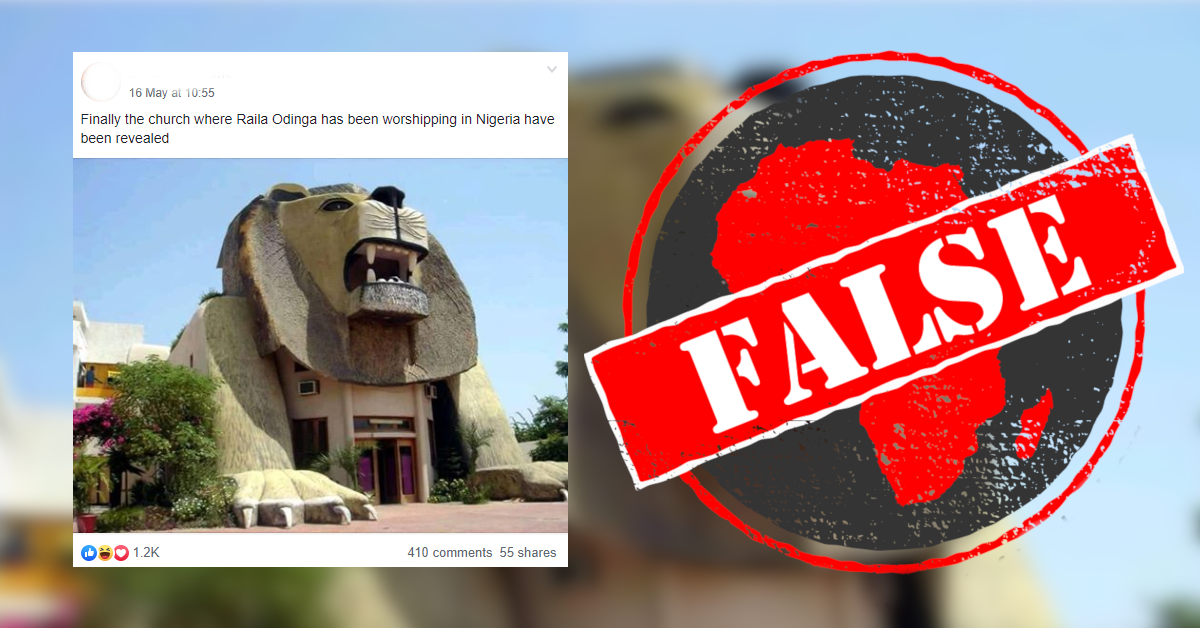Politics is a dirty game, they say.
Kenya’s deputy president William Ruto and opposition leader Raila Odinga have been bitter political rivals for some time now. The two often engage in showdowns during public gatherings.
One Facebook user uploaded a photo claiming a building shaped like a massive lion was the “church” where Odinga worshipped when in Nigeria.
“Finally the church where Raila Odinga has been worshipping in Nigeria have been revealed,” he captioned the photo.
The post appeared in a Facebook group with over a million members and attracted more than 1,200 reactions, about 400 comments and 55 shares.

But a reverse image search reveals that the structure is the Hotel Keur Gaïndé in Dakar, Senegal – not a “church in Nigeria”.
Jumia Travel, a booking website, describes the hotel as “famous for its African style architecture”.
Africa Check used Google maps to pinpoint the exact position of the hotel, along CVD road (Route du CVD) in the Senegalese capital. Google Street View shows photos of the hotel taken at different angles. – Dancan Bwire (23/05/19)
Kenya’s deputy president William Ruto and opposition leader Raila Odinga have been bitter political rivals for some time now. The two often engage in showdowns during public gatherings.
One Facebook user uploaded a photo claiming a building shaped like a massive lion was the “church” where Odinga worshipped when in Nigeria.
“Finally the church where Raila Odinga has been worshipping in Nigeria have been revealed,” he captioned the photo.
The post appeared in a Facebook group with over a million members and attracted more than 1,200 reactions, about 400 comments and 55 shares.

Photo of hotel in Senegal
But a reverse image search reveals that the structure is the Hotel Keur Gaïndé in Dakar, Senegal – not a “church in Nigeria”.
Jumia Travel, a booking website, describes the hotel as “famous for its African style architecture”.
Africa Check used Google maps to pinpoint the exact position of the hotel, along CVD road (Route du CVD) in the Senegalese capital. Google Street View shows photos of the hotel taken at different angles. – Dancan Bwire (23/05/19)
Republish our content for free
For publishers: what to do if your post is rated false
A fact-checker has rated your Facebook or Instagram post as “false”, “altered”, “partly false” or “missing context”. This could have serious consequences. What do you do?
Click on our guide for the steps you should follow.
Publishers guideAfrica Check teams up with Facebook
Africa Check is a partner in Meta's third-party fact-checking programme to help stop the spread of false information on social media.
The content we rate as “false” will be downgraded on Facebook and Instagram. This means fewer people will see it.
You can also help identify false information on Facebook. This guide explains how.




Add new comment